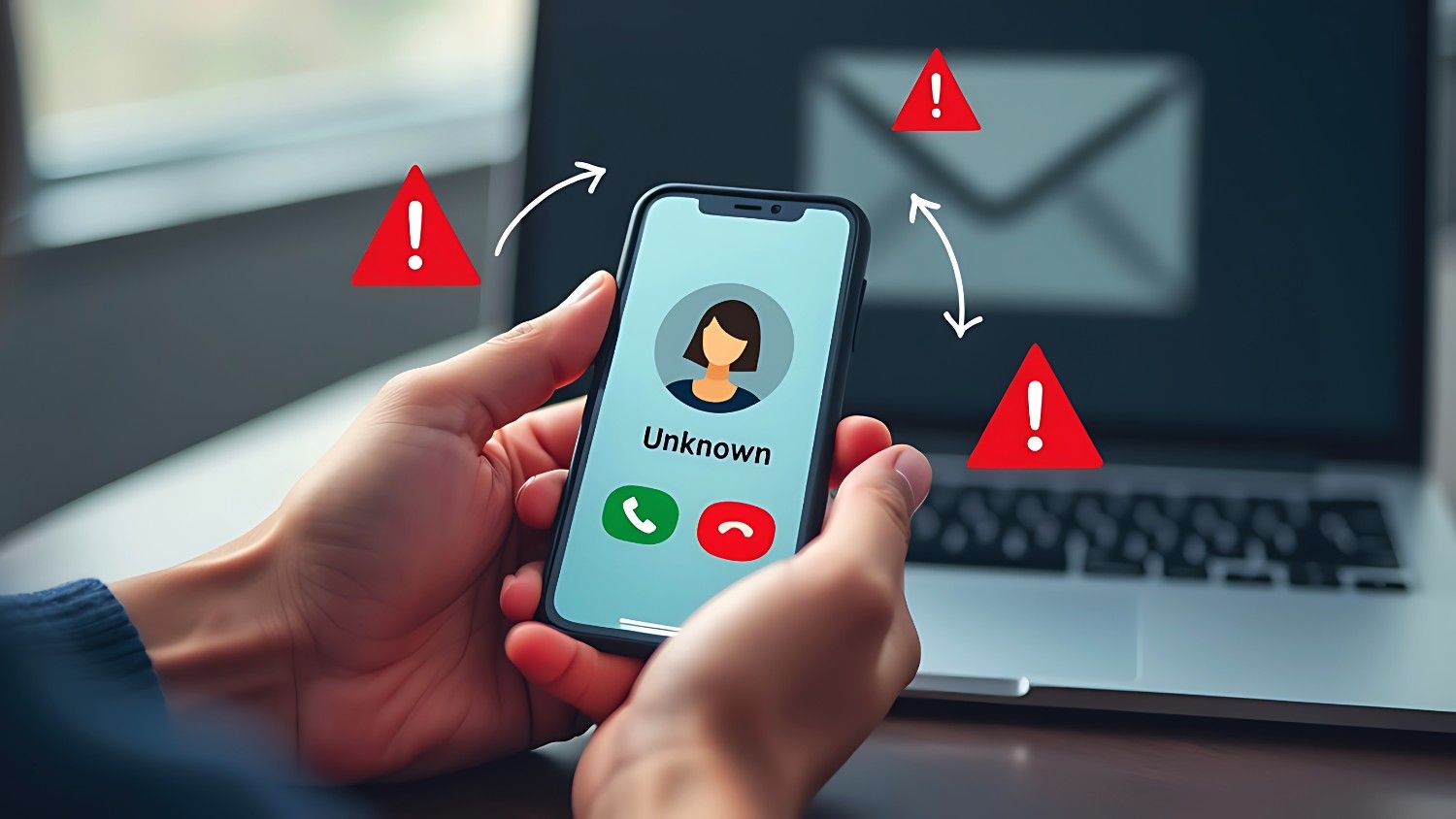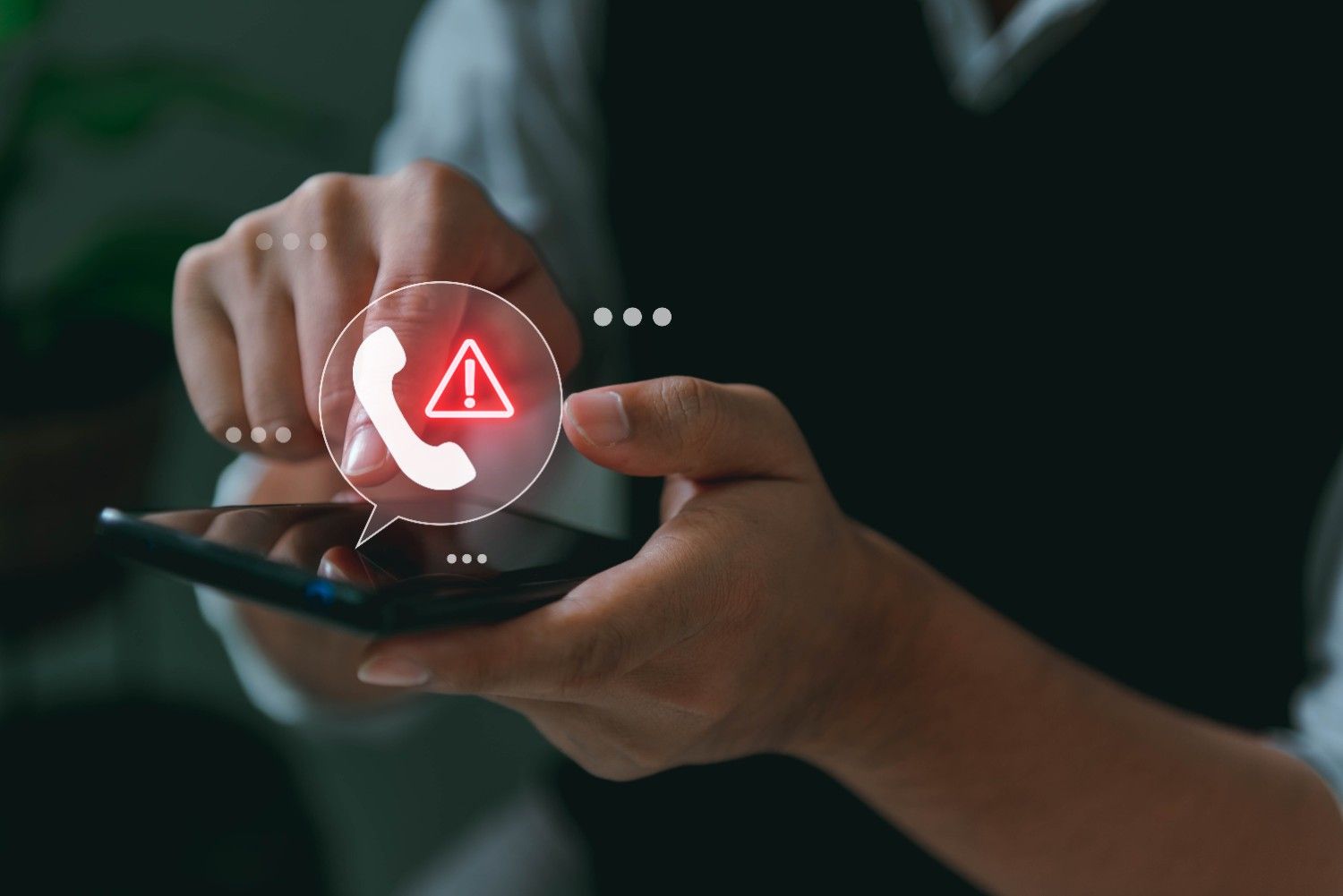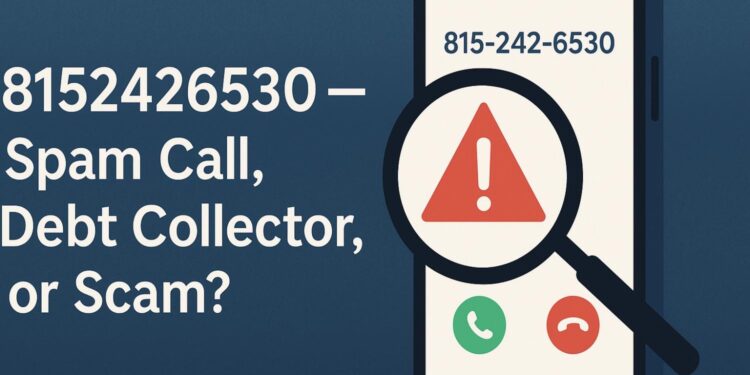If you’ve ever stared at your ringing phone and wondered whether to pick up, you’re not alone. The number 8152426530 showed up on my screen recently, and I went down the rabbit hole to figure out what’s going on. Here’s a clear, fact-checked guide to help you decide how to handle calls from this number and protect yourself moving forward.
What do people report about 8152426530?
Multiple call-reporting hubs flag activity around this number. RoboKiller labels (815) 242-6530 as a Debt Collector, with a negative user reputation and blocking status. Their dashboard shows more than a thousand total calls logged and recent activity in September 2025.
YouMail’s public directory lists typical voicemails tied to this number. Transcripts reference messages “from Portfolio Recovery,” a well-known debt collection company, suggesting many calls are collection-related or impersonations thereof. Either way, the pattern is consistent with aggressive, repeat outreach.
Abstract’s phone data adds a neutral technical detail: 815-242-6530 resolves as a valid VoIP number routed through Bandwidth.com and points to the Rockford, Illinois area—useful context, though it doesn’t prove legitimacy by itself.
Should you answer calls from 8152426530?
Short answer: you don’t have to. If you don’t recognize the number—or you’re not expecting a collector’s call—letting it roll to voicemail is the safest move. If it’s real business, they’ll leave a message you can review calmly. If it’s a robocall or spoof, you avoid the pressure to respond on the spot.
If a voicemail mentions a debt, do not provide personal details over the phone. Instead, ask the caller (in a later, controlled callback) to send you a written validation notice and verify the debt independently before paying or sharing info. Government consumer guidance emphasizes not engaging with suspicious calls; more on reporting steps below.

How can you verify who’s behind 8152426530 without getting scammed?
Cross-check the message details. Names used in voicemails (e.g., “Portfolio Recovery”) can be verified against the company’s official contact info. Use the website you find yourself—don’t trust numbers given in a voicemail. Compare the callback number they provide with official listings.
Request written validation. If someone claims you owe money, US consumer rules give you the right to a written validation notice. Don’t confirm your SSN, DOB, or banking details before you receive and verify it.
Check a few reputable lookup sources. Tools that show activity patterns and carrier data can help you spot red flags (e.g., sudden spikes in call volume, negative user sentiment, VoIP routing used in many spam operations). RoboKiller activity stats, YouMail transcripts, and neutral carrier lookups provide a fuller picture.
8152426530: spam, spoofed, or legitimate collector—what’s most likely?
Given public reports, the number is often associated with debt-collection style voicemails. That doesn’t mean every single call is legitimate—numbers can be spoofed, and scammers frequently pose as known agencies. Treat all unexpected “debt” calls as unverified until you confirm in writing and through official channels. The FCC and FTC repeatedly warn consumers not to share sensitive information with unsolicited callers and to report illegal robocalls.
How do you block, report, and reduce calls from 8152426530?
Block the number on your device and carrier. Use your phone’s native block list and check if your carrier offers network-level spam filtering.

Register and report.
- Add your number to the National Do Not Call Registry; it won’t stop scammers, but it helps reduce legitimate telemarketing and supports enforcement. Report unwanted calls that continue after 31 days.
- File a complaint with the FCC for illegal robocalls and spoofing.
- You can also use USA.gov’s step-by-step page for reporting telemarketing scams and finding the right agency.
Let unknown numbers go to voicemail. Don’t press buttons to “opt out.” That confirms your line is active and can lead to more robocalls, a point reinforced across federal guidance.
Is there anything unique about the 815 area code or this carrier?
The 815 area code covers parts of northern Illinois. The carrier metadata for 8152426530 shows Bandwidth.com with VoIP provisioning—common for both legitimate businesses and call centers (and unfortunately, for bad actors, too). So, location and carrier alone cannot determine trust. Always verify via official, written channels.
FAQs about 8152426530
1. Is 8152426530 safe to answer?
If you don’t recognize it, let it go to voicemail. Review any message without calling back the number provided in the voicemail. Instead, use the company’s official website to obtain verified contact details. This aligns with federal guidance to avoid engaging on suspicious calls.
2. Why do I keep getting repeated calls from 8152426530?
High call volumes often indicate call-center activity. RoboKiller shows over a thousand calls tied to this number, with a negative reputation. Whether it’s a collector or spoofed traffic, blocking and reporting are appropriate steps.
3. How do I stop calls from 8152426530 for good?
Block the number on your device and with your carrier, enable spam filters, register your number on the Do Not Call Registry, and report repeated unwanted calls to the FCC. While no method is perfect, combining all three reduces volume and aids enforcement.
4. What if the voicemail says I owe money?
Don’t pay or share personal info right away. Request written validation and independently confirm the debt with the original creditor. Scammers frequently impersonate known agencies; verification protects you.
Final Call: Don’t Let 8152426530 Rush You
Here’s my rule: urgency on the phone doesn’t equal legitimacy. If 8152426530 calls, let it ring out, check the voicemail, and verify anything debt-related in writing through official channels. Then, block, filter, and report to help shrink the spam ecosystem for everyone. Start with the Do Not Call Registry and file complaints with the FCC if the calls persist. Stay calm, stay skeptical, and make the first move only after you’ve verified the facts.










